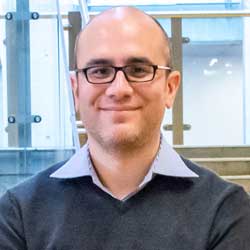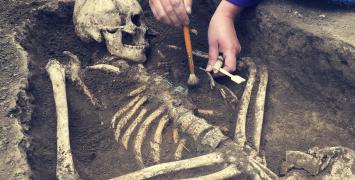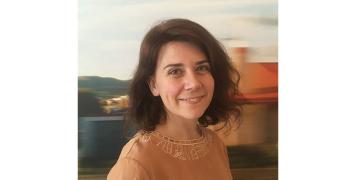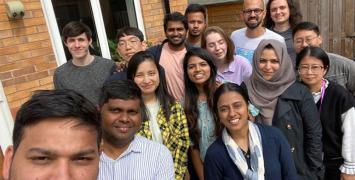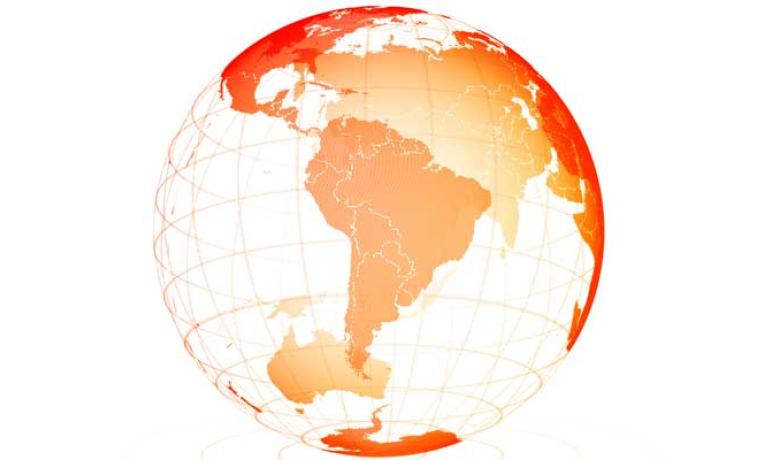
As part of a series of interviews with researchers who have moved from other continents and countries to work in Europe, we spoke to Alejandro Raul Burga Ramos.
|
|
Raised in Latin America, today you carry out research in Austria. What motivated you to move to Europe?
My main motivation has always been the pursuit of scientific research. I left my home country, Peru, when I was 17 years old to study biochemistry. It has been a long journey that took me to Chile, Spain, the US, and finally, to Austria, where I started my own lab at the age of 33. Not even in my wildest dreams could I have imagined that I would be in such a privileged position (doing what I love for a living), and I’m excited about what the future will bring.
What was your initial source of information concerning the ERC funding schemes and what made you decide to apply for one?
I did my PhD under the supervision of Dr. Ben Lehner at the CRG, Barcelona. Ben had just started his lab when I joined as a student in 2007 and he had been awarded an ERC starting grant. That was the first time I heard about ERC. When I was looking for jobs after my postdoc, I applied for an ERC starting grant because it literally opened the doors of European institutions for me and my family.
Also, I should mention that apart from the scientific proposal itself, it was surprisingly easy to apply for it. There are no major requirements (for example nationality or visa status), and no endless paperwork. I could be wrong, but I don’t think there is any other funding scheme like (the ERC's) in the world.
There are no major requirements (for example nationality or visa status), and no endless paperwork. I could be wrong, but I don’t think there is any other funding scheme like (the ERC's) in the world.
What are the benefits for a researcher who has been awarded an ERC grant?
In simple words, peace of mind and scientific freedom. ERC provides you with a generous budget to pursue ambitious projects early in your career. What else could you ask for?
Can you describe your ERC project in layman’s terms?
As an evolutionary geneticist, I’m fascinated by how conflict between genes can lead to evolutionary innovations. In particular, we are studying a novel class of selfish genes that we discovered in nematodes.
we are studying a novel class of selfish genes that we discovered in nematodes
Selfish genes are regions of your genome that have their own agenda, they don’t care about the well-being of their host, but only their own survival. In fact, these selfish elements are incredibly efficient at spreading in natural populations. But we have no idea how they do it! Our research aims to understand their molecular mechanisms, their prevalence in nature and their role in evolution.
What is it like to pursue your research within an international environment?
I think this one of the most beautiful aspects of science. We often see in the news, unfortunately, how cultural and religious differences can be quite problematic in everyday life. But within science, it is quite the opposite.
You can bring together researchers from any corner of the world, and you can immediately connect because we all speak the same “language”. I don’t mean to say the scientific community is without flaw - there is still a lot of progress to be made in terms of equality and inclusivity - but the vast majority of scientists I’ve met are quite welcoming and open-minded.
Do you think that the Latin American scientific community can benefit from such international collaborations? Do you maintain research ties with institutions in Chile?
Of course, international collaborations are important for any researcher, and in particular for scientists in Latin America because their scientific communities tend to be smaller, which could lead to isolation.
international collaborations are important for any researcher, and in particular for scientists in Latin America because their scientific communities tend to be smaller, which could lead to isolation
At the moment, I don’t have any active scientific collaboration with groups in Latin America, as I just started my own lab. But I would be thrilled to have them.
Whenever I visit Chile, I always contact my old friends and colleagues. I have never said no to any invitation or proposal coming from Latin America because I consider giving back to Latin America my moral duty. I have a profound admiration for all the brave women and men doing fantastic science in Latin America, usually facing great adversity, and it’s the least I can do.
Would you encourage researchers based in Latin America to consider applying for ERC grants and joining ERC teams in Europe?
Certainly. Students and researchers from Latin America are as capable as those in Europe or elsewhere. In fact, I think they have a much stronger drive than people from Europe and this is a very important quality in a scientist.
5 pieces of advice for potential applicants from your region?
Search for job online and if you don’t find something that fits you then directly contact European institutions and ask them whether they would be willing to sponsor you. Try contacting previous grantees (information is available online) and ask for advice and application materials. Plan ahead, it may take a couple of months to write a (good) grant. Send your grant to colleagues, especially those outside your field of expertise, and get their feedback. Double check your eligibility window and plan accordingly. If you fail the first time, don’t get discouraged, I got my ERC grant the second time I applied!
EURAXESS Worldwide is an EU backed initiative supporting researchers working outside of Europe who wish to connect with Europe. This interview was carried out thanks to cooperation with Charlotte Grawitz of EURAXESS LAC. Via EURAXESS LAC, Latin American, Caribbean and Brazilian researchers can learn about EU-funded mobility opportunities.
Want to know more about ERC funding for researchers currently based in Latin America and the Caribbean? Check out our dedicated webinar, tomorrow 19 November at 10.00 (Bogota time)

